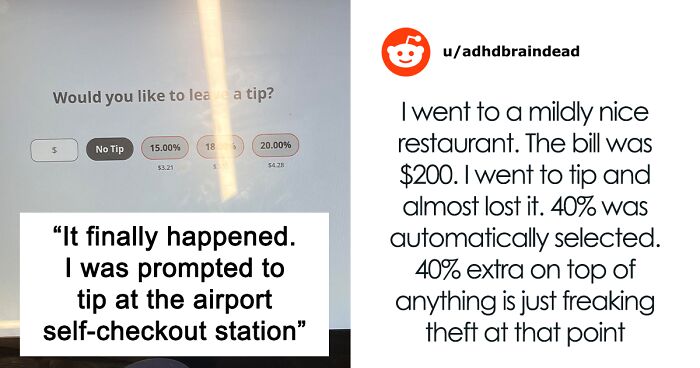
“The ‘Don’t Have To Interact With A Human’ Fee”: Tipping Option At Self-Checkout Sparks Outrage
Ah, tipping culture. If you’re a server or bartender in the United States, earning tips is your livelihood. But if you’re from another country and visiting the US, you might find tipping to be incredibly inconvenient and unnecessary. And if you’re a massive corporation, you might now see tipping as an opportunity to earn more money by doing nothing!
Recently, Reddit users have been capturing times they’ve been prompted to tip while using self-checkout machines in restaurants, airports and more, and the internet has had plenty to say about how out of hand tipping culture has gotten.
Customers have noticed tipping prompts popping up at self-checkout machines around the United States
Image credits: _seaweed_
While tipping culture in the US has long been criticized, these self-checkout machines have taken it one step further
Image credist: maria0284
Image credits: EggfooVA
While earning tips has been the livelihood of many workers in the US for decades, the idea of tipping machines is new
Tipping culture, particularly in the United States, has been a hot topic for decades. According to World Population Review, Americans tip more than any other country, with gratuity being expected, or sometimes even added by the establishment, on all restaurant bills, for taxi drivers and food delivery couriers, many nail and hair salons, and for bartenders and baristas. Essentially, if anyone is doing you a service, it is appropriate to tip them. This culture stems from the American Congress introducing a “tipping-credit” in the 1960s, meaning that establishments could pay their employees less than minimum wage as long as they were earning significant tips. And despite how outdated many Americans consider this practice, it’s still alive and well today, as the minimum wage for servers at restaurants in the US is $2.13 per hour.
While tipping 15-20% on your dinner at a restaurant is one thing, companies seem to be becoming bolder and bolder when it comes to asking for tips. Starbucks recently introduced a tip option, even to customers visiting their drive-thru. One woman also claims a Ben & Jerry’s employee recently “got annoyed” when she refused to leave a tip after purchasing a $2 ice cream cone. And pressure to tip has been becoming increasingly strong, as more and more companies are introducing virtual prompts suggesting amounts to tip, rather than the old fashioned tip jars gently sitting on the counter. However, customers don’t seem to be on board with being pressured into leaving tips.
Image credits: Dan Smedley (not the actual image)
But as more and more companies introduce virtual tipping prompts, customers are becoming less inclined to want to give
“It makes you feel bad. You feel like you have to do it because they’re asking you to do it,” Clarissa Moore, a 35-year-old who works as a supervisor at a utility company in Pennsylvania, told CBS News, in reference to the screens demanding tips. “But then you have to think about the position that puts people in. They’re paying for something that they really don’t want to pay for, or they’re tipping when they really don’t want to tip — or can’t afford to tip — because they don’t want to feel bad.” But asking for tips on a self-checkout machine seems to be crossing a uniquely dystopian line, many consumers believe.
According to the Wall Street Journal, tipping options at self-checkout cash points have begun popping up in coffee shops, bakeries, airports and sports stadiums. And while business owners claim that these tips can boost their staff’s pay, customers are wondering whose pockets this money is actually ending up in. Many believe this is a way for corporations to put the blame on customers for employees earning such low wages, rather than taking accountability themselves. “Just the prompt, in general, is a bit of emotional blackmail,” 26-year-old Garrett Bemiller, who works in public relations in Manhattan, told the Wall Street Journal after being asked to add a 10-20% tip on a $6 water bottle he purchased at an airport self-checkout machine.
Image credits: David Dvořáček (not the actual image)
Many believe that companies should simply start paying their employees fair wages, rather than putting the responsibility on customers
While companies likely assume that the more they remind customers to tip, the more likely they are to leave an extra few dollars, this thinking seems to be backfiring. According to a recent survey from Bankrate, 66% of Americans now have a negative view of tipping. 41% of the poll’s participants believe that businesses should take responsibility for paying their employees better, and one third of tippers say they’re annoyed by the prompts suggesting they tip a certain amount. In fact, the total number of consumers who say they always tip has decreased by a whopping 10% over the past two years, and 16% of survey respondents said they would be willing to pay higher prices if we could do away with tipping altogether. Meanwhile, the credit card processor Square reports that 75% of remote transactions now include tipping prompts, which often pop up at drive-thrus as well.
We would love to hear your thoughts on tipping culture, particularly in the United States, down below. Do you think it’s gotten out of hand, pandas? And how would you suggest that companies remedy the situation? Feel free to share, and then if you’re interested in checking out another Bored Panda article discussing similar themes, we recommend reading this piece next.
Image credits: Karolina Grabowska (not the actual image)
Frustrated consumers have shared their thoughts online, calling out companies who have the audacity to ask for tips at self-checkout
Some have even shared stories of similar tipping experiences they’ve had
The concept of "forceful" tipping for me is absurd. So the employer can give their employees a ridiculous small salary, LEGALLY, so the customers are forced to tip so the workers can earn their living and be actually paid for their work? I really don't get it. The cost of running an establishment should include workers wages, it goes without saying. So if I own, let's say, a car repair shop I have to pay my employees but if I own a restaurant I don't? What's the difference? How is it still legal?
BeCaUsE wE aRe tHe bESt CoUntRy iN tHe WorLd! UsA! uSa!
Load More Replies...I would be willing to leave a -20% tip at a self-checkout. Yes, that's a *negative* 20% tip. A 20% discount for my hard work checking myself out.
I believe servers, tenders, ECT should be paid a fair wage and I'll vote for it until my fingers bleed. That being said, I'm not tipping a friggin robot.
Load More Replies...If they paid the self service machines a living wage then people would not have feel guilty about not leaving a tip
Those machines are living paycheck to paycheck.
Load More Replies...The concept of "forceful" tipping for me is absurd. So the employer can give their employees a ridiculous small salary, LEGALLY, so the customers are forced to tip so the workers can earn their living and be actually paid for their work? I really don't get it. The cost of running an establishment should include workers wages, it goes without saying. So if I own, let's say, a car repair shop I have to pay my employees but if I own a restaurant I don't? What's the difference? How is it still legal?
BeCaUsE wE aRe tHe bESt CoUntRy iN tHe WorLd! UsA! uSa!
Load More Replies...I would be willing to leave a -20% tip at a self-checkout. Yes, that's a *negative* 20% tip. A 20% discount for my hard work checking myself out.
I believe servers, tenders, ECT should be paid a fair wage and I'll vote for it until my fingers bleed. That being said, I'm not tipping a friggin robot.
Load More Replies...If they paid the self service machines a living wage then people would not have feel guilty about not leaving a tip
Those machines are living paycheck to paycheck.
Load More Replies...
 Dark Mode
Dark Mode 

 No fees, cancel anytime
No fees, cancel anytime 







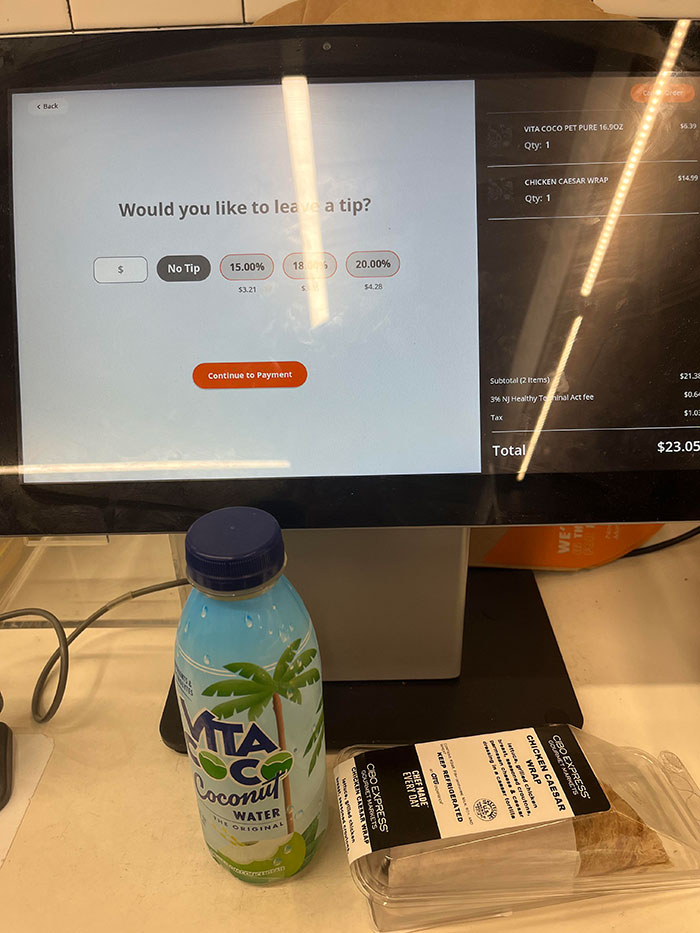

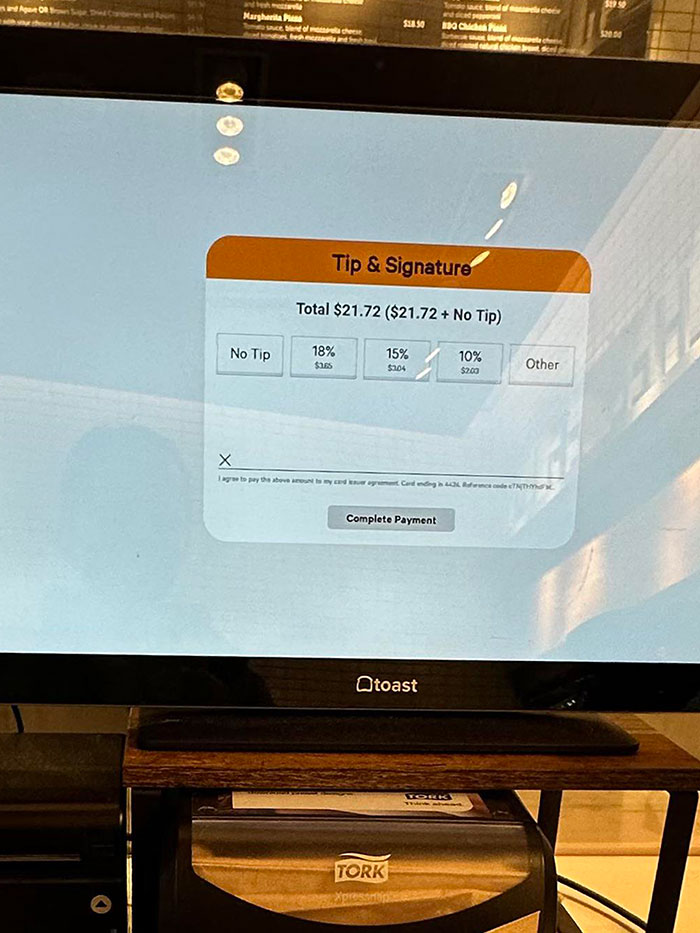

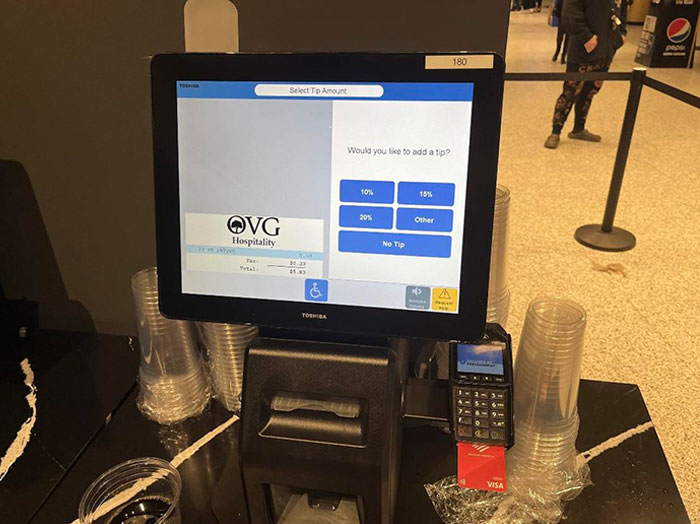
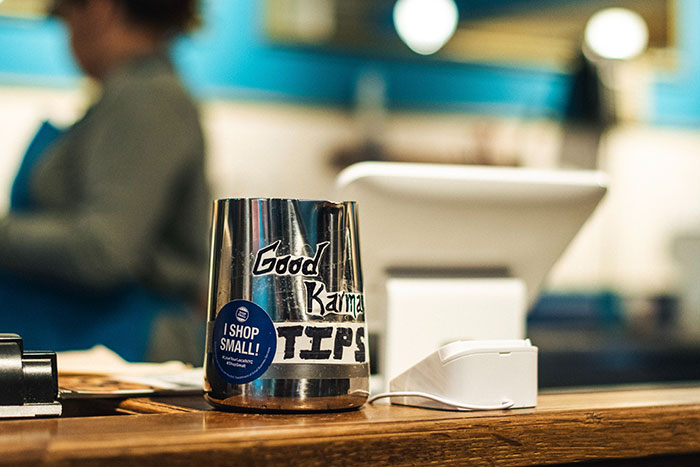


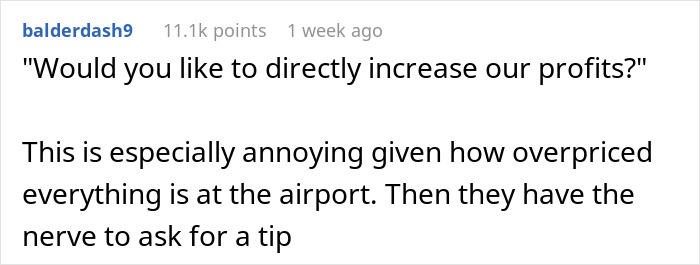

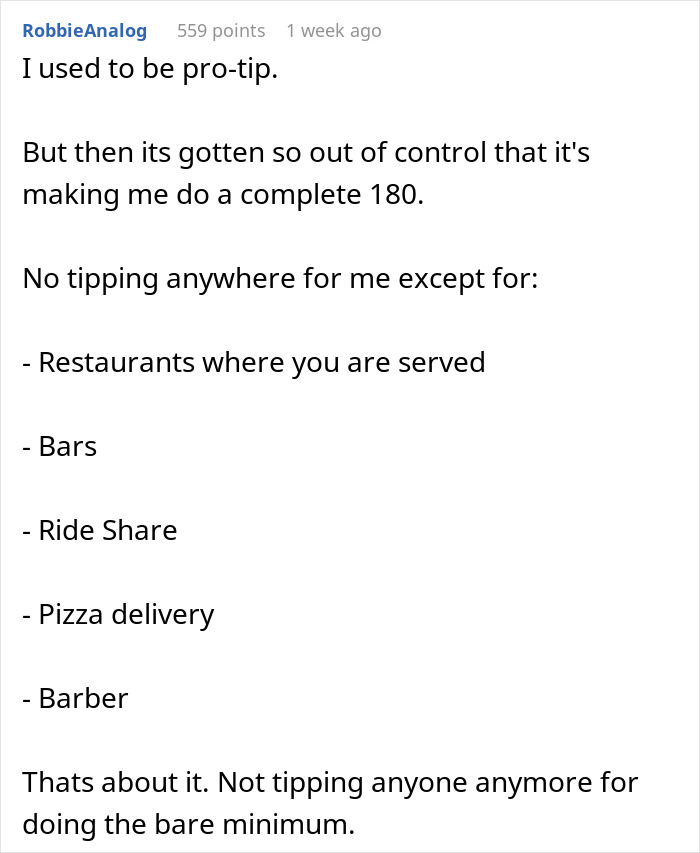

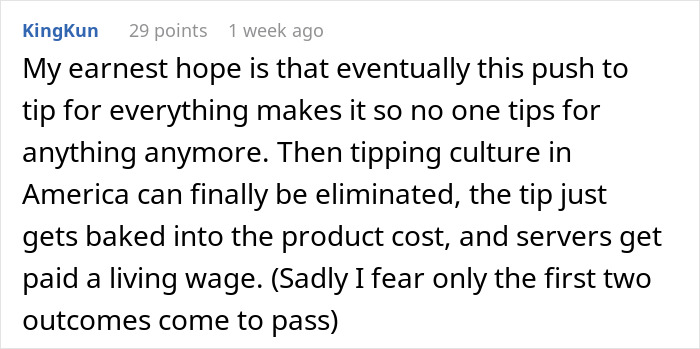
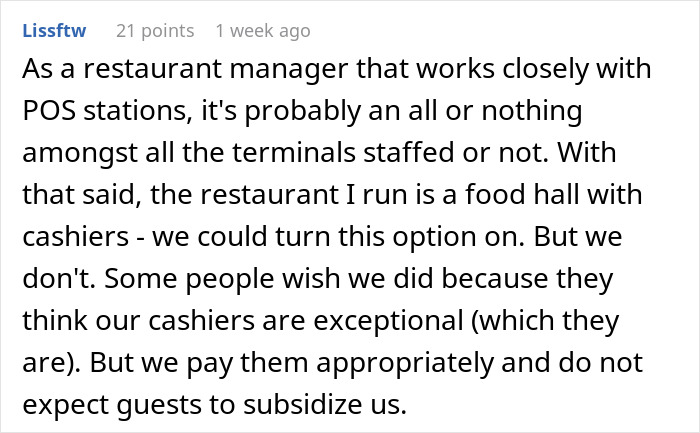
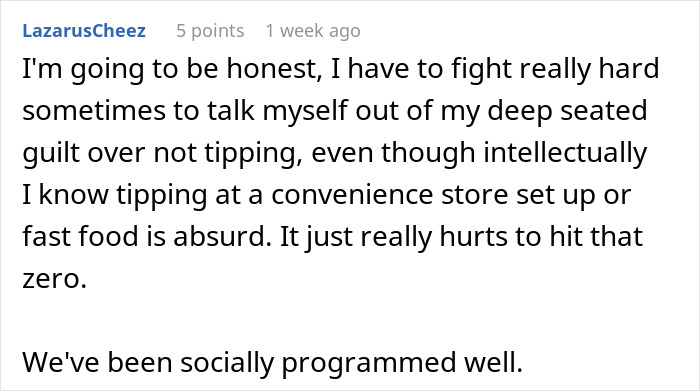
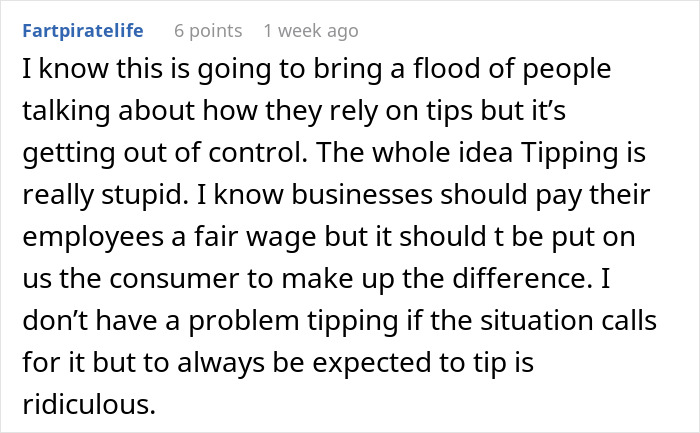
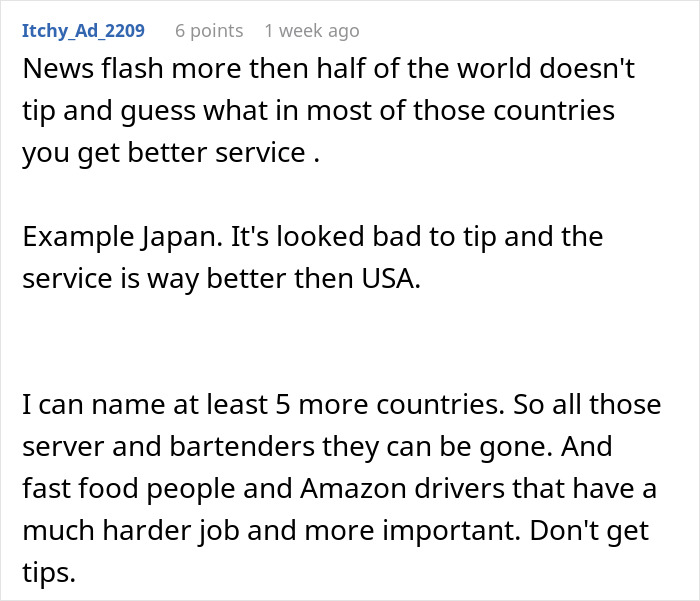
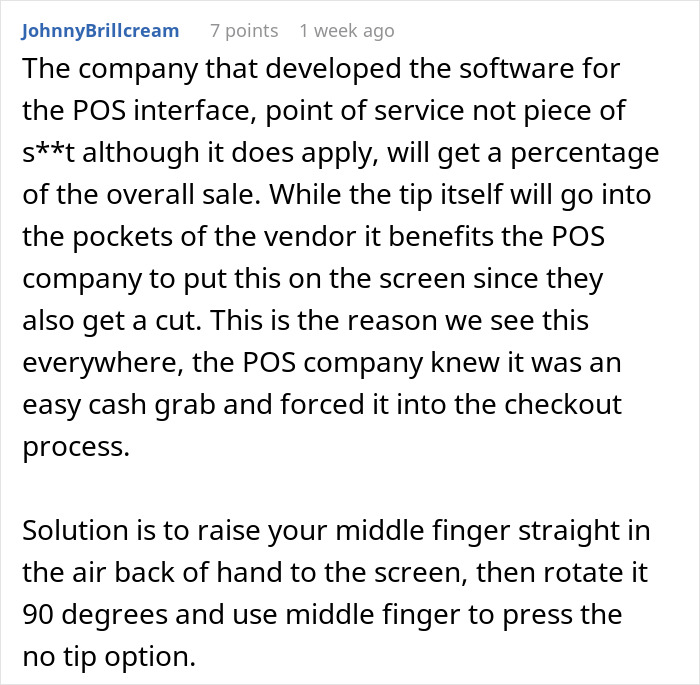


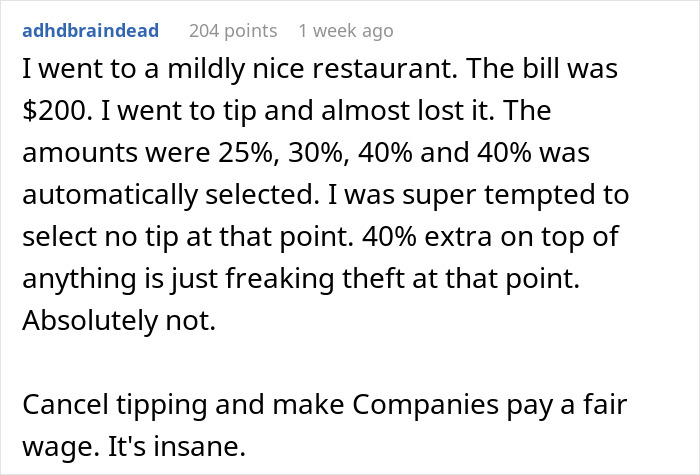

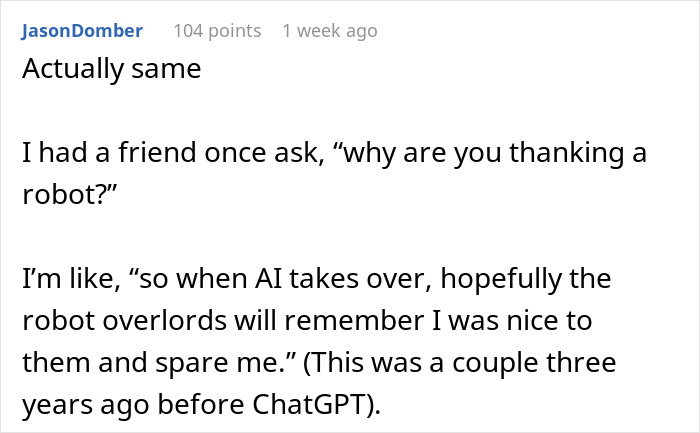
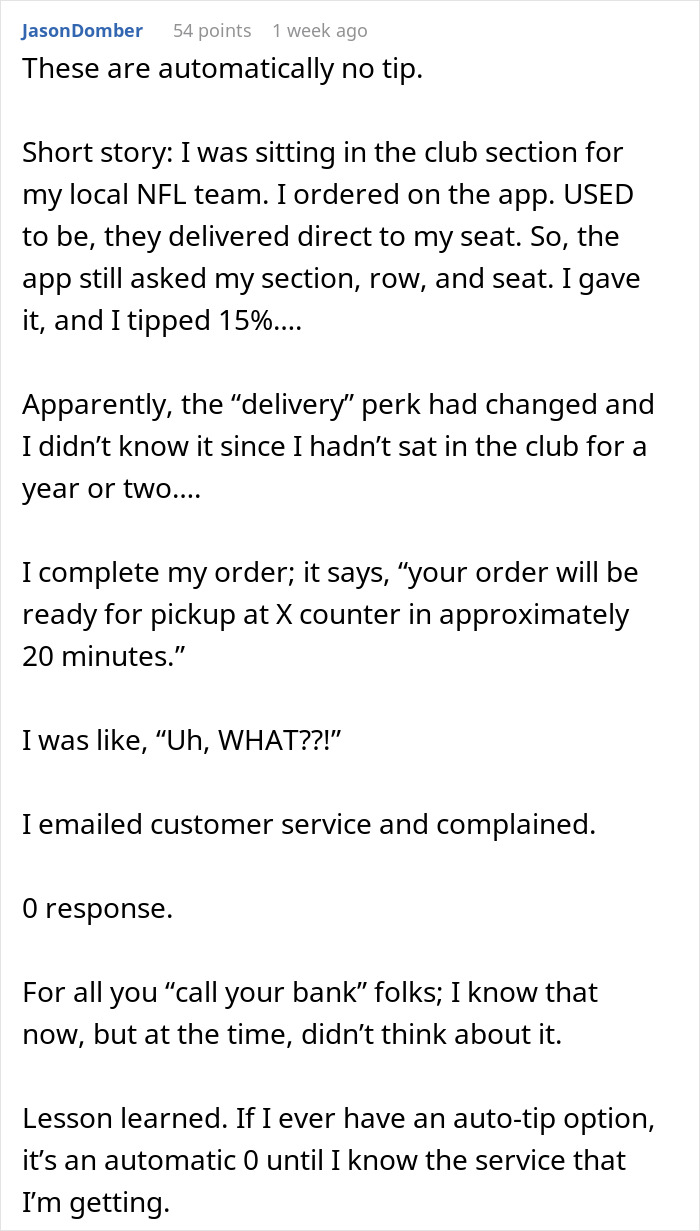
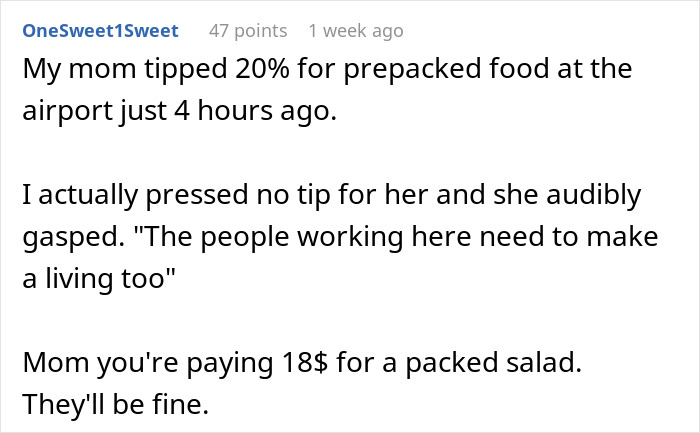
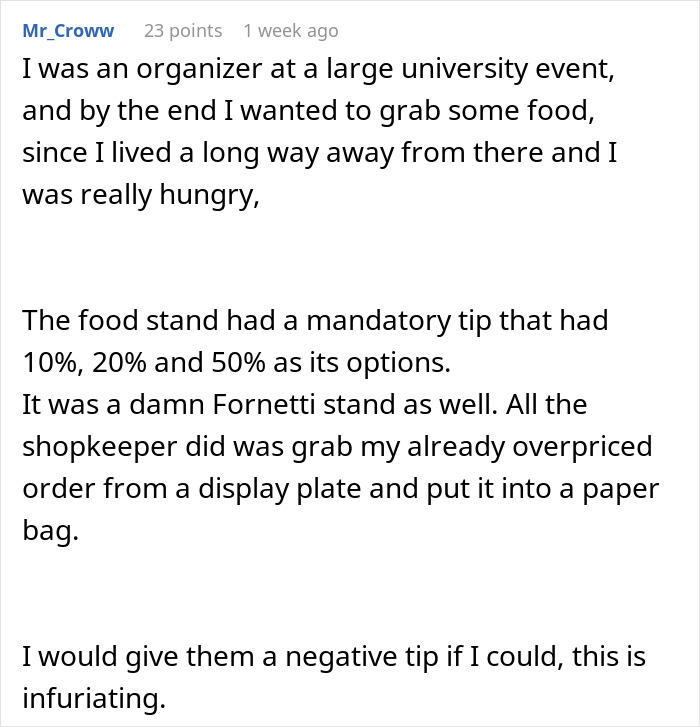
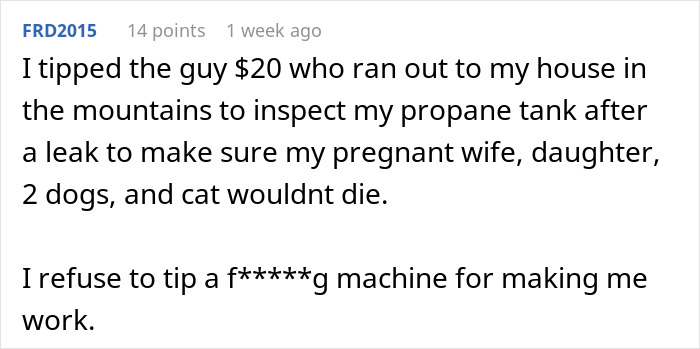
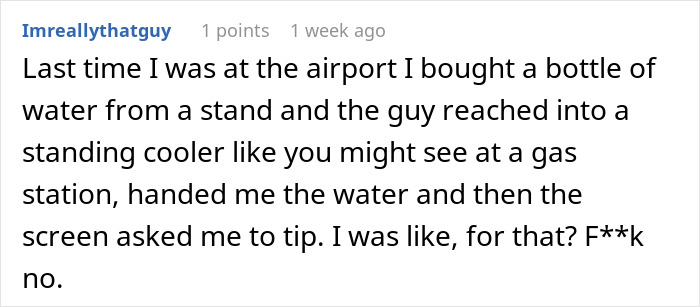












































81
64